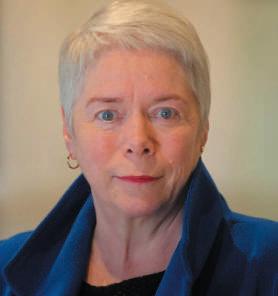3 minute read
Building back better
Next Article
Building back better
From the outset of the Covid-19 pandemic, President Higgins sought to promote greater public debate on the vulnerabilities in our national and international systems that exacerbated the impact of the spread of the virus.
In April, the President published a number of articles arguing that the response to the Covid-19 pandemic relied heavily on State action, and that this renewed appreciation for the role of the State should inform not only shortterm responses to the pandemic but also the long-term strategies to reconstruct our society, and reduce our future vulnerabilities.
The President stated that “successful crisis management is, as we have come to learn, no guarantee of durable reform. We therefore must embed the hard-earned wisdom from the Covid-19 crisis into strong scholarly work, policy and institutional frameworks.”
The President has argued that the Covid-19 pandemic has illustrated how the global economic system is inherently subject to crises and cascading failures, and that new systemic approaches and economic thinking are needed to address these problems.
In a keynote address to the OECD, the President said that “understandably, much current economic commentary focuses on the cost of the pandemic. But we must also reflect on the systemic weaknesses it has exposed in how we organise our society and economy.”
Citizens and governments should use the lessons of the Covid-19 crisis as an opportunity to tackle growing inequality and environmental damage, and move away from an unhelpful focus on economic growth as a core metric of economic success. A narrow focus on GDP growth has resulted in consumption, investment, government expenditure and the balance of trade being “calibrated so that economic growth is maximised at whatever cost to social cohesion and without any due regard to inequality or adverse ecological impacts.”
“How regrettable it is that it has taken a pandemic in which thousands of lives have been lost in so many countries to establish, or rekindle, widespread appreciation of work in the public sphere, of the public sector and the importance in the economy of the public good—and, in terms of our shared future, the state’s benign and transformative capacity.”
22 April 2020
In October 2020, President Higgins addressed the OECD ‘Confronting Planetary Emergencies’ conference
In October, President Higgins spoke of the need to use scientific insights for the benefit of the whole of humanity.
In a keynote address to the online Engineers Ireland annual conference, the President called on engineers, business leaders and policy makers to take urgent action on climate change and to work with communities to transition to a more resilient society. The President emphasised the importance of sharing the benefits of scientific discovery, including the Covid-19 vaccines, equitably among and within nations.
The President called on the Irish State to “lead by example” in the battle against climate change, and to play a leading role “if it is to have any credibility, any realistic hope of bringing its citizens with it on the difficult journey to a decarbonised future.” The President argued that a “radical paradigm shift” is needed, making greater connections between ecology, economics and society.
Throughout the year, President Higgins has argued that, despite the seriousness of the Covid-19 crisis, there are seeds of hope for the future. This hope stems in large parts from the solidarity and kindness that has characterised people’s responses to the unprecedented situation, but also from the ingenuity that has been on display, as people found new ways of working, socialising and caring for each other.
Our hope for the future lies in our ability and willingness to galvanise this sense of solidarity, and to draw lessons from our experiences, both of how we confronted the virus and how our societies came to be so vulnerable to its impacts. The pandemic has made clear the urgency of the need of addressing the flaws inherent in our current economic model, and of embracing a new paradigm, based on universalism, sustainability and equality.
As the President said in December 2020: “For out of such a crisis, we are presented with perhaps a oncein-a-generation opportunity to do things better, to embrace and bring to fruition a new paradigm of existence with each other, in relation to work and living, and with the world itself; a renewed and healthier connection of society, sustainable economy and ecology.”

President Higgins addressing a virtual conference










